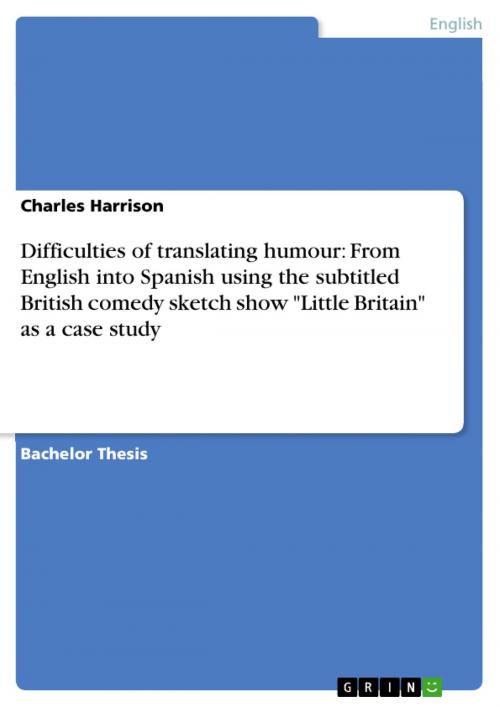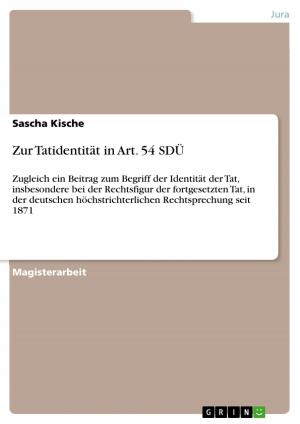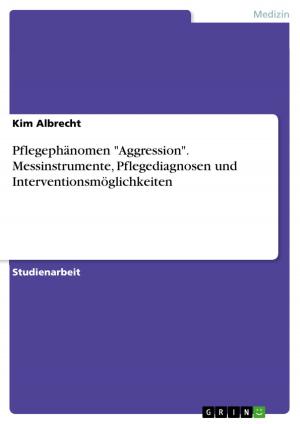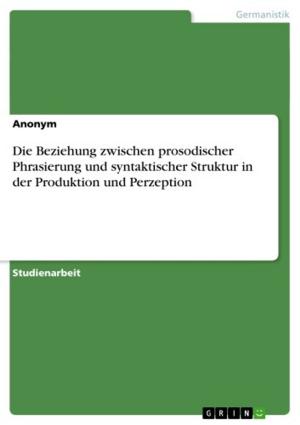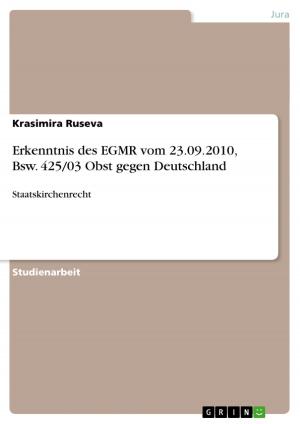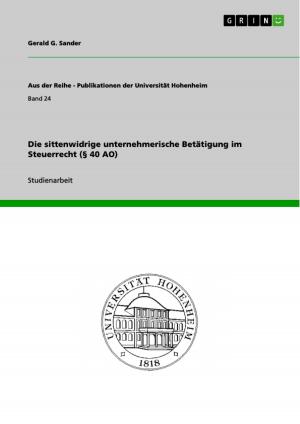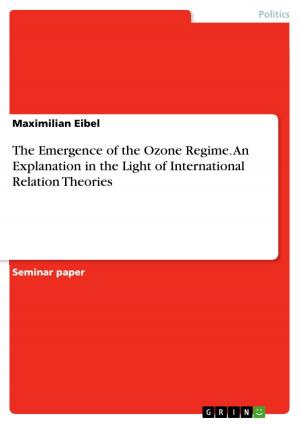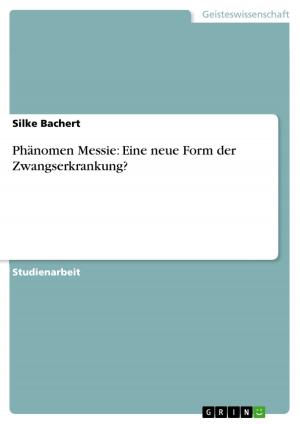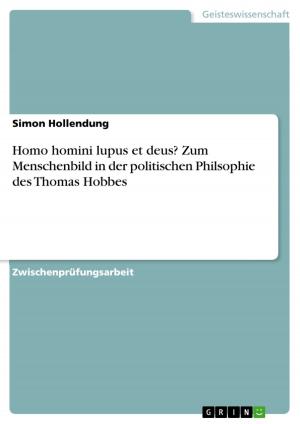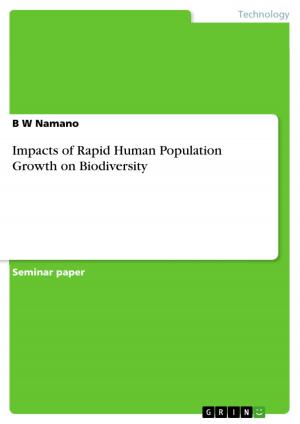Difficulties of translating humour: From English into Spanish using the subtitled British comedy sketch show 'Little Britain' as a case study
Nonfiction, Entertainment, Drama, Anthologies| Author: | Charles Harrison | ISBN: | 9783656228400 |
| Publisher: | GRIN Verlag | Publication: | July 2, 2012 |
| Imprint: | GRIN Verlag | Language: | English |
| Author: | Charles Harrison |
| ISBN: | 9783656228400 |
| Publisher: | GRIN Verlag |
| Publication: | July 2, 2012 |
| Imprint: | GRIN Verlag |
| Language: | English |
Bachelor Thesis from the year 2012 in the subject English Language and Literature Studies - Linguistics, grade: B+, University of Portsmouth, language: English, abstract: The focus of the dissertation will be the discussion of the difficulties that the translator encountered when faced with translating humour using the subtitled comedy sketch show Little Britain as a case study. For the benefit of the reader, the first part of this dissertation is going to shed led on various theories of humour. Moreover, it will discuss how humour is created in the comedy sketch show Little Britain and by taking a linguistic approach will show thus how humour can be produced. In addition, as subtitles will be used for the analysis of the case study, limitations and constraints will be discussed as the translator cannot merely focus on the linguistic features and possible problems like she/he would do in any other form of translation. The second part will discuss a theory of translating humour established by Attardo (1994). Using this theory, the dissertation will aim to explore and focus on aspects that raise a certain degree of difficulty, if not the highest, always in relation to humour that is seen in a comedy sketch show. Furthermore, translating humour linked to culture will be discussed, as one of the major difficulties for the translator was to overcome the vast amount of culture-specific terms and expressions. The last part will concentrate on the case study of Little Britain and examples will be drawn on each aspect of translating humour that was discussed in the previous chapter. The reader will understand how this particular aspect of translation poses difficulty for the translator and he/she will be shown, where necessary, possible alternative solutions that the translator could have chosen when tackling a particular situation. Concluding, the dissertation is set to confirm the high degree of difficulty the translator faces when dealing with translating the humour that is seen in this particular comedy sketch show.
Bachelor Thesis from the year 2012 in the subject English Language and Literature Studies - Linguistics, grade: B+, University of Portsmouth, language: English, abstract: The focus of the dissertation will be the discussion of the difficulties that the translator encountered when faced with translating humour using the subtitled comedy sketch show Little Britain as a case study. For the benefit of the reader, the first part of this dissertation is going to shed led on various theories of humour. Moreover, it will discuss how humour is created in the comedy sketch show Little Britain and by taking a linguistic approach will show thus how humour can be produced. In addition, as subtitles will be used for the analysis of the case study, limitations and constraints will be discussed as the translator cannot merely focus on the linguistic features and possible problems like she/he would do in any other form of translation. The second part will discuss a theory of translating humour established by Attardo (1994). Using this theory, the dissertation will aim to explore and focus on aspects that raise a certain degree of difficulty, if not the highest, always in relation to humour that is seen in a comedy sketch show. Furthermore, translating humour linked to culture will be discussed, as one of the major difficulties for the translator was to overcome the vast amount of culture-specific terms and expressions. The last part will concentrate on the case study of Little Britain and examples will be drawn on each aspect of translating humour that was discussed in the previous chapter. The reader will understand how this particular aspect of translation poses difficulty for the translator and he/she will be shown, where necessary, possible alternative solutions that the translator could have chosen when tackling a particular situation. Concluding, the dissertation is set to confirm the high degree of difficulty the translator faces when dealing with translating the humour that is seen in this particular comedy sketch show.
